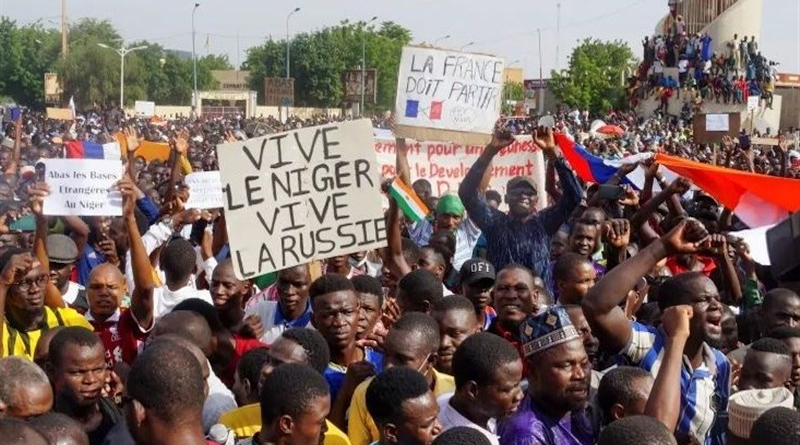Niger Dumps US Soldiers, Greets Russian Instructors – OpEd
By IDN
By Lisa Vives
When Niger suspended military cooperation with the US earlier this year it was a major story for a country rarely in the media spotlight.
The story has only grown bigger since then.
This week, thousands of çprotesters gathered in Niamey, the capital of Niger, calling for the withdrawal of US troops. About 1,000 U.S. soldiers had been bivouacked at a remote drone base in Niger’s desert to fly drones and track movements of extremist groups throughout the region.
Once a. foothold for US military operations in the Sahel region, including a $100 million drone base referred to as “Nigerien Air Base 201”, Niger has turned against the US and welcomed 100 Russian instructors, part of Russia’s Africa Corps. This struck a blow to the ability of the US to project power in the region.
It took the United States three months to label the July 2023 ouster of President Mohamed Bazoum by the country’s presidential guard as a coup. By formally designating the military takeover as a coup, it immediately invoked legal limitations for security cooperation and counterterrorism operations with Niger.
Niger’s alliance with Russia goes back years. They bought military helicopters from Russia in 2016 and the two countries signed an agreement on military cooperation and training two years later.
The strengthened Russia-Niger alliance leaves a black eye for Washington in Niger, said Cameron Hudson of the Washington, DC-based Center for Strategic and International Studies (CSIS). “The arrival of the Russian forces is the cherry on the top.”
US paternalism annoys Niger
Over the years, Niger received precious little aside from military weapons from the US and France, while Nigerien artisans were exposed to physical hazards as they dug for gold, making $68 a month,
In a country rich in minerals, social spending is abysmal—education receives only 3.5% of the budget, school attendance is low—34%, infant mortality is high (274 per 1,000 due to poor health and inadequate nutrition) and life expectancy is 62 years.
Niger’s decision to cut ties with the US was spurred in part by paternalism—specifically warnings from the US delegation against developing closer ties with Russia, to which the Nigerien leaders took offense.
Colonel Abdramane described these warnings as an attempt to deny “the sovereign Nigerien people the right to choose their partners and types of partnerships capable of truly helping them fight against terrorism.” Further, the recent visit by a US delegation failed to follow diplomatic protocol by failing to share the date of arrival of the delegation, its composition, and its agenda.
“The government of Niger forcefully denounces the condescending attitude accompanied by the threat of retaliation from the head of the American delegation towards the Nigerien government and people,” said Col. Abdramane.
In a commentary by Catherine Nzuki of the CSIS Africa Program, she summed it up: “a military-first approach cannot address the root causes of insecurity in the Sahel – poor governance, deeply rooted corruption, poverty, scarcity of resources, and local grievances”.


An informative article but should add the key Russian target for Niger: the ability to disrupt $13 billion gas pipeline project from Nigeria to the European Union through Niger. If Russia and its Wagner mercenaries can persuade the Niger junta to blockade energy going to Europe, that could be yet another Kremlin energy-deprivation weapon against Europe and ultimately against Ukraine.
Reference: “Niger and Russia are forming military ties: 3 ways this could upset old allies”: https://theconversation.com/niger-and-russia-are-forming-military-ties-3-ways-this-could-upset-old-allies-221696